Three
BUSINESS AND INDUSTRY
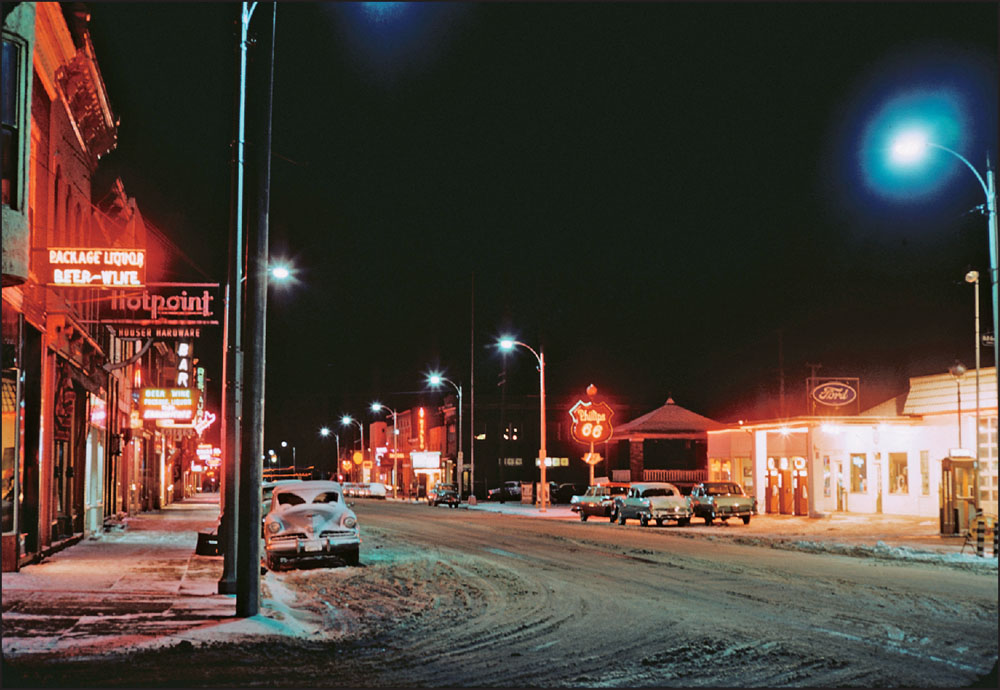
Bright lights from various local business, including the Rialto Theater, illuminate Roosevelt Road through a wintery Walkerton. This 1950s photograph illustrates how active the downtown area was in its heyday. (Courtesy of Walkerton Area Historical Society.)
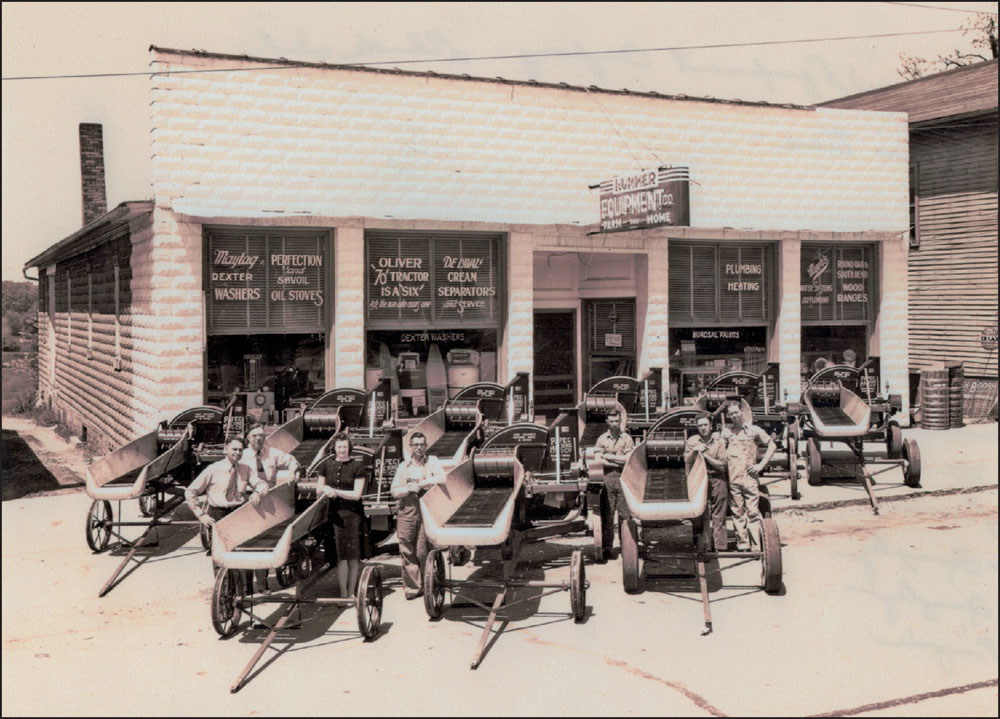
Elmer Hummer owned and operated the Hummer Equipment Company from the late 1920s until his retirement in the late 1960s. The Lakeville store sold the latest farming equipment and was an officially licensed Oliver tractor dealership. Pictured here next to Papec silage cutters are, from left to right, Elmer Hummer, Paul Masters, Evelyn Miller, Knight Lawson, Maurice Quigley, Charles Quigley, and Bob Snyder. (Courtesy of Sandra Ort.)
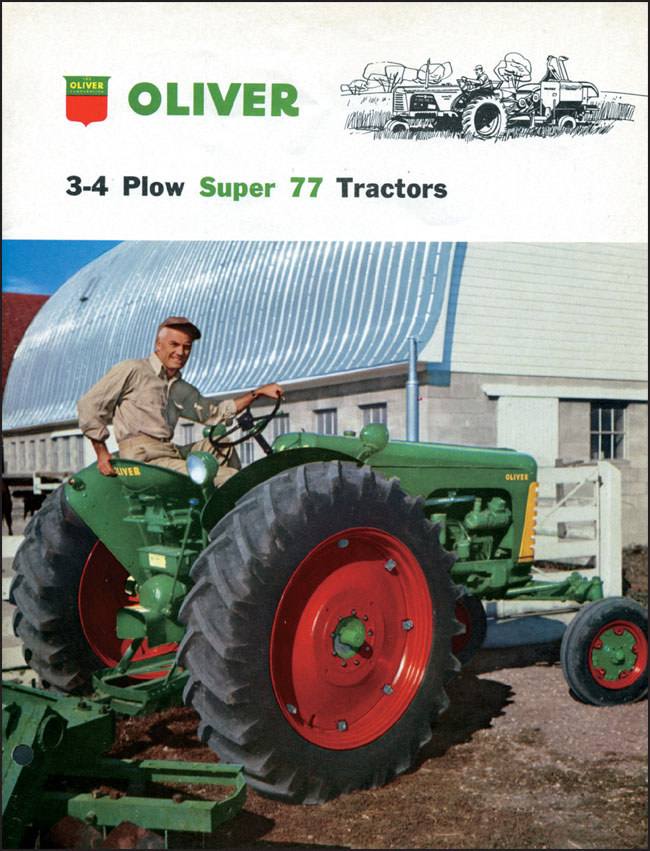
Elmer Hummer and his wife, Marie, lived on a sprawling farm on New Road—he called it Maple Lane Farm. It sits just west of the Maple Grove United Methodist Church. The farm proved popular with the Oliver Company, of South Bend, which used it as a site for many advertising photo shoots, including this one used to advertise their Super 77 tractor in 1955. (Courtesy of the Oliver Heritage.)
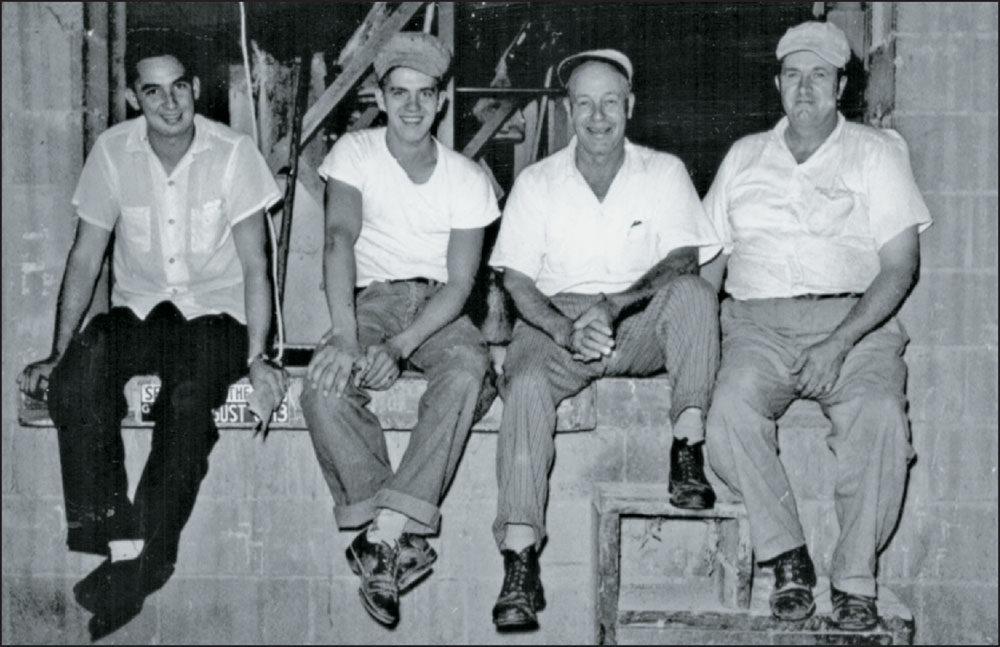
As a rural farming community, North Liberty was able to sustain two grain elevators for many years. The North Liberty Grain and Feed co-op was located east of town, off State Road 4, and owned by various shareholders, with the Summers family holding the largest share. Pictured at the North Liberty Grain and Feed elevator in 1955 are, from left to right, an unidentified salesman, John O’Conner, Mel “MJ” Summers, and Charles Whitmer. (Courtesy of Thomas Peterson.)
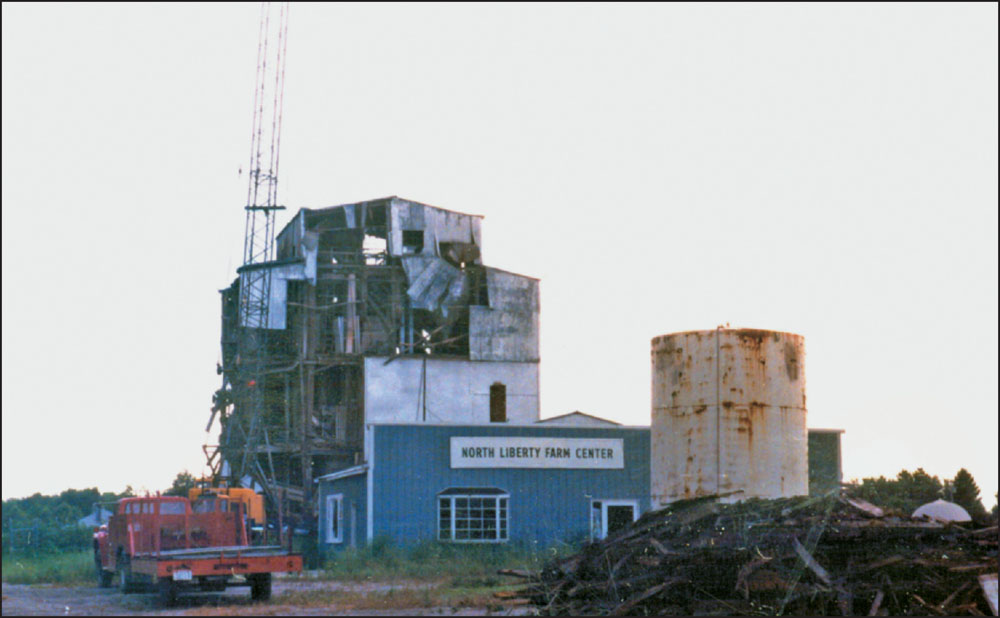
Owned by the Knecht family for many years, the North Liberty Farm Center was located south of town, by the old Wabash Railroad. When it was destroyed by fire in the early 1990s, it was owned by Thomas Bradford. (Courtesy of Thomas Peterson.)
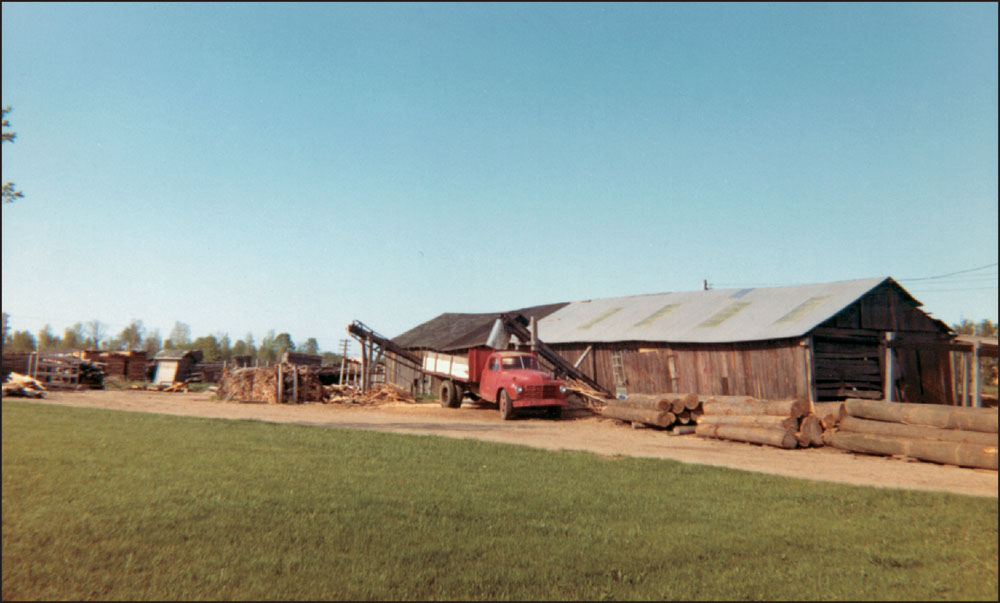
This Lakeville sawmill, owned by the Casad family at one time, sat on Jackson Street. It is pictured here in the late 1960s. (Courtesy of Jeanne Geyer.)

A fire devastated the North Liberty Lumber and Coal Company in 1953. Everything on the property was destroyed except an old shed that had, ironically, been considered the greatest fire risk. The rebuilt property, which included a 10,000-square-foot warehouse and 8,000-square-foot store and office, is shown here in the mid-1950s. (Courtesy of Big C. Lumber Co.)

In the spring of 1964, the Walkerton Industrial Fund purchased 32.5 acres at the west end of town for a new industrial park. Plas Steel was the first business to break ground that year. Among those pictured at the Plas Steel ground-breaking ceremony are, in no particular order, Denslow Doll, Mrs. Shobert, Samuel Shobert, Nick LaFeber, George Parks, Branson Hiatt, Mahlon Jacob, Dave Mellin, and Wayne Burch. (Courtesy of Walkerton Area Historical Society.)
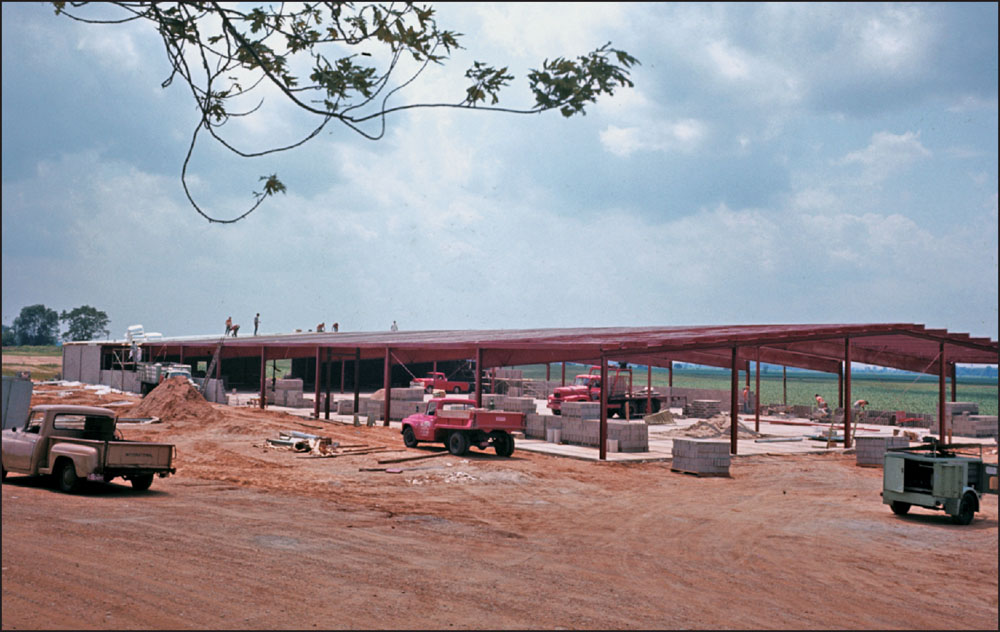
This image shows the construction of the Plas Steel building. The company later changed its name to Polygon Company to differentiate between industrial products and recreation. In 1964, Walkerton Tool & Die, as well as Hartsough Manufacturing, also purchased sites on which to build new factories in the industrial park. (Courtesy of Walkerton Area Historical Society.)
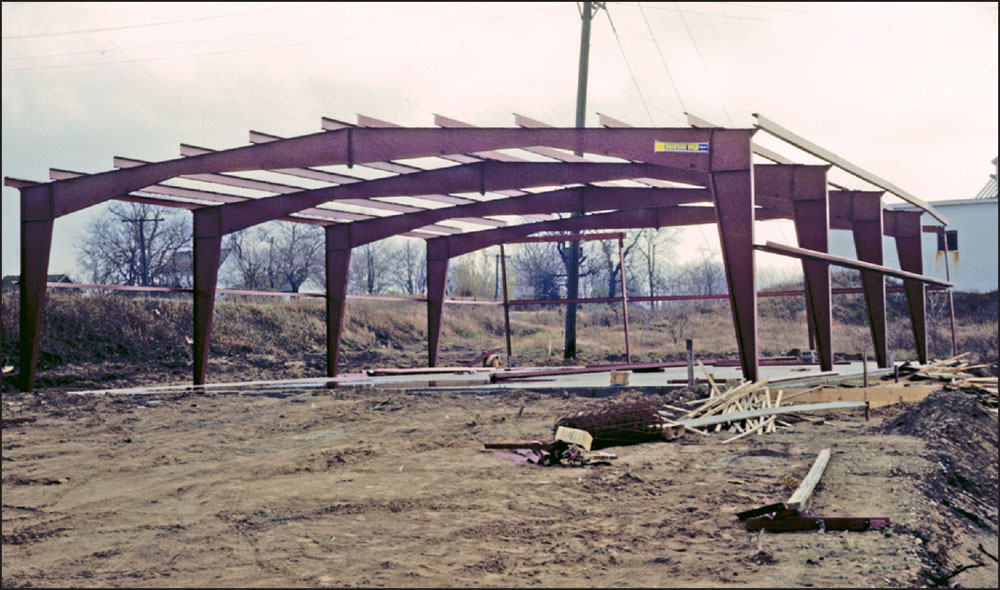
In 1953, Robert Hiler Sr. moved with his family from Chicago, Illinois, to Walkerton, where he joined his father, Charles O. Hiler, in the foundry business. Their company, shown here during construction in the 1950s, was located on Roosevelt Road. (Courtesy of Walkerton Area Historical Society.)
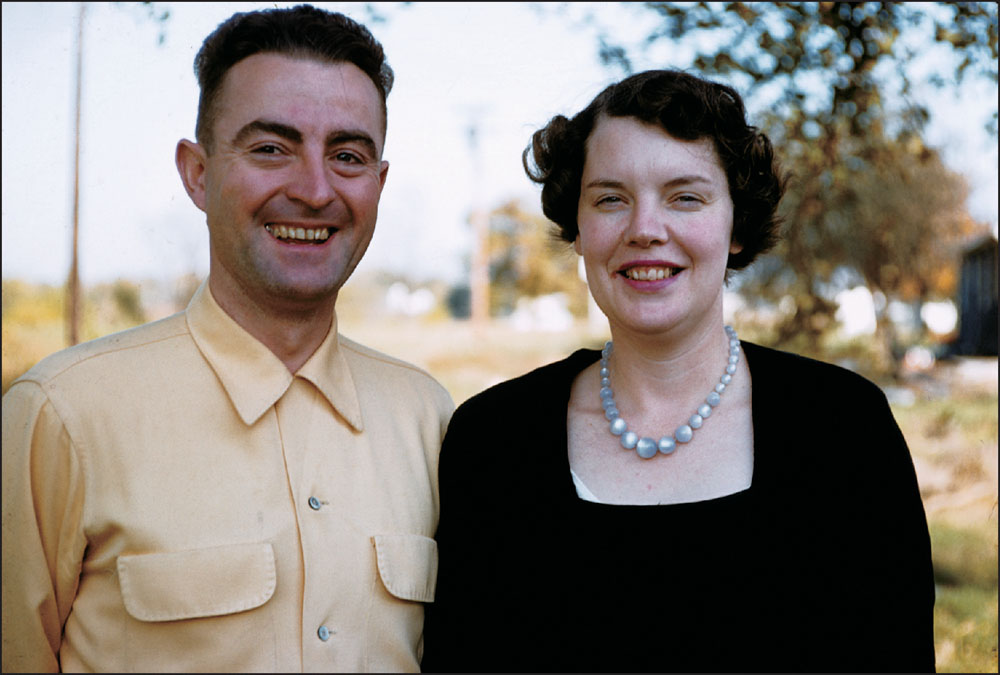
Robert Hiler Sr. and his wife, Margaret Frances, pictured here in the 1950s, had four children: Patricia; Robert J.; Lawrence E.; and John P., who served Indiana as a representative in the US Congress. Robert Hiler Sr. was chairman of the board of Charles O. Hiler & Son, Inc., and a chairman of Accurate Castings, Inc. He later created the Robert J. Hiler Family Foundation, a charitable trust. (Courtesy of Walkerton Area Historical Society.)
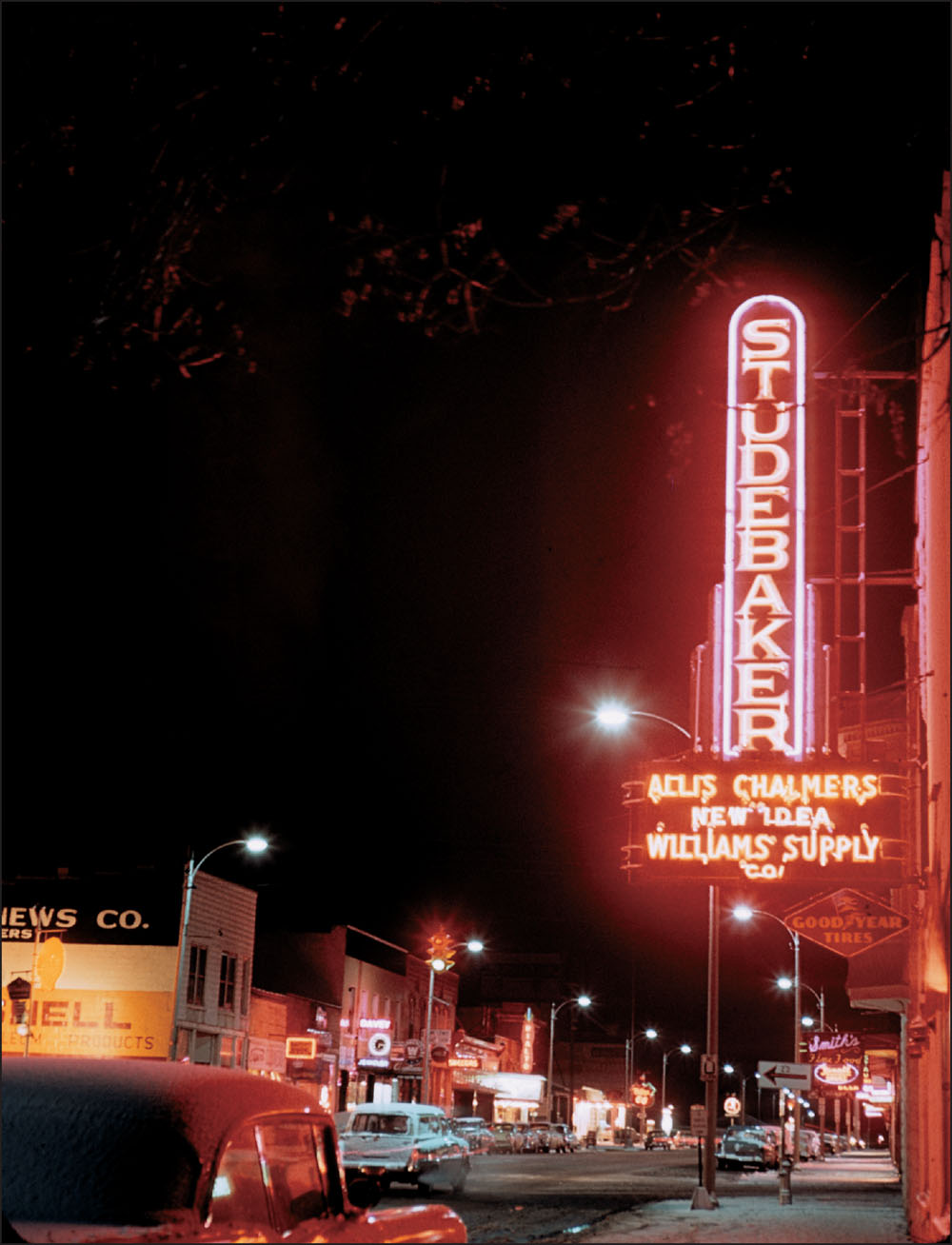
Many residents of southern St. Joseph County traveled daily to South Bend, home of the Studebaker factory, for work. In the 1950s, a steady stream of traffic was visible for miles during rush hour on State Road 23. The Studebaker factory was not only a vital source of employment for area residents; Studebakers were also sold in this part of the county. North Liberty had a storefront that sold Studebaker wagons in the 1800s, and Walkerton had a Studebaker showroom, pictured here in the 1950s. By 1956, this dealership had closed, and the building was remodeled as a bowling alley. (Courtesy of Walkerton Area Historical Society.)

Ivo Peddycord owned and operated Ivo’s, a popular grocery store in North Liberty, from the late 1930s until the mid-1950s. Ivo’s is pictured here in the early 1950s. For a time, Peddycord lived above the store with his family. (Courtesy of Thomas Peterson.)
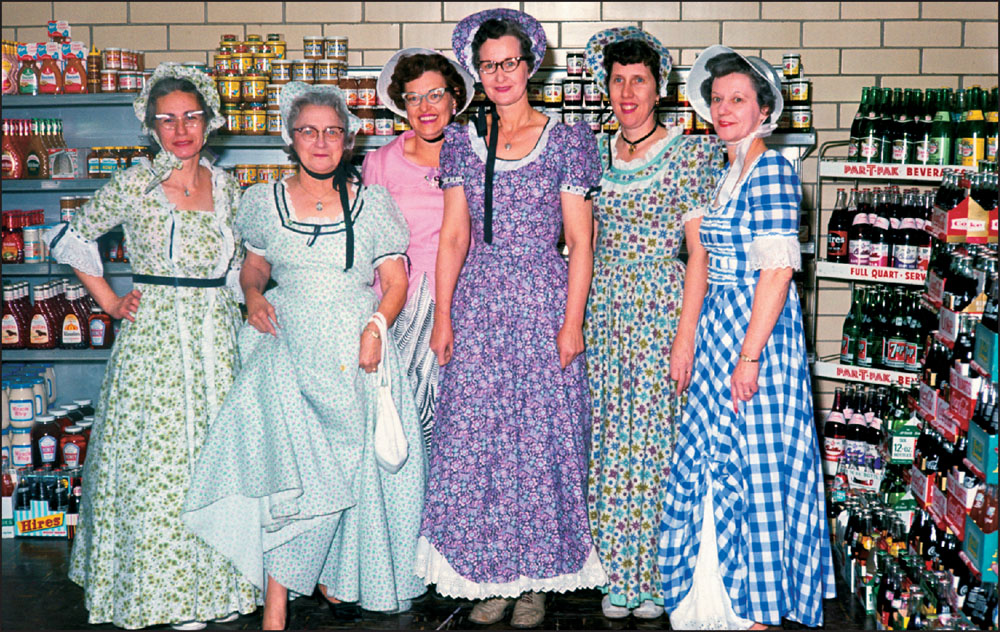
Dave & Ray’s, on the corner of Van Buren and Illinois Streets in Walkerton, was always a fun place to buy groceries. One of the area’s largest stores, it held frequent special events; pictured here at Old Fashioned Days in 1964 are, from left to right, Verda Downs, Fayetta Dunn, Lavaun Jasinski, Velma Stahly, Iris Jones, and Nelle Patrick. (Courtesy of Walkerton Area Historical Society.)

Ray Chapman (left) and Dave Mellin, owners of Dave & Ray’s, took part in the Old Fashioned Days event held at their store in 1964. In later years, the grocery store became Ray & Kenny’s when Ray’s son Kenny joined his father’s enterprise. (Courtesy of Walkerton Area Historical Society.)
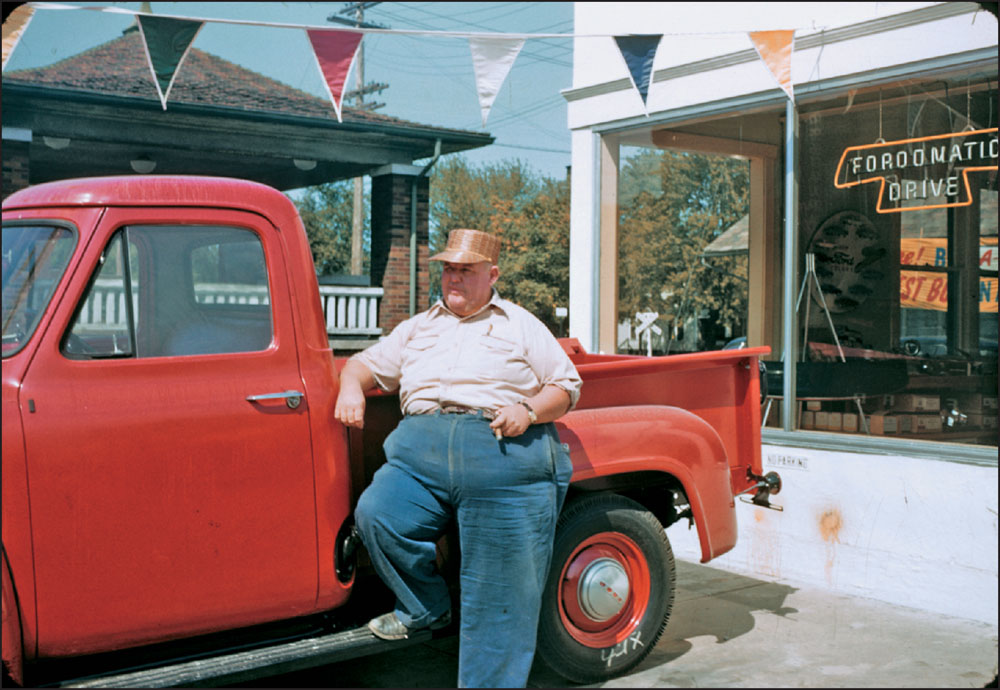
Theodore “Fats” Rhodes was well known in the Walkerton community. His rapid-fire talking came in handy in his job as a salesman at the Ford dealership, pictured here in the mid-1950s, and in his other job as a local auctioneer. (Courtesy of Walkerton Area Historical Society.)
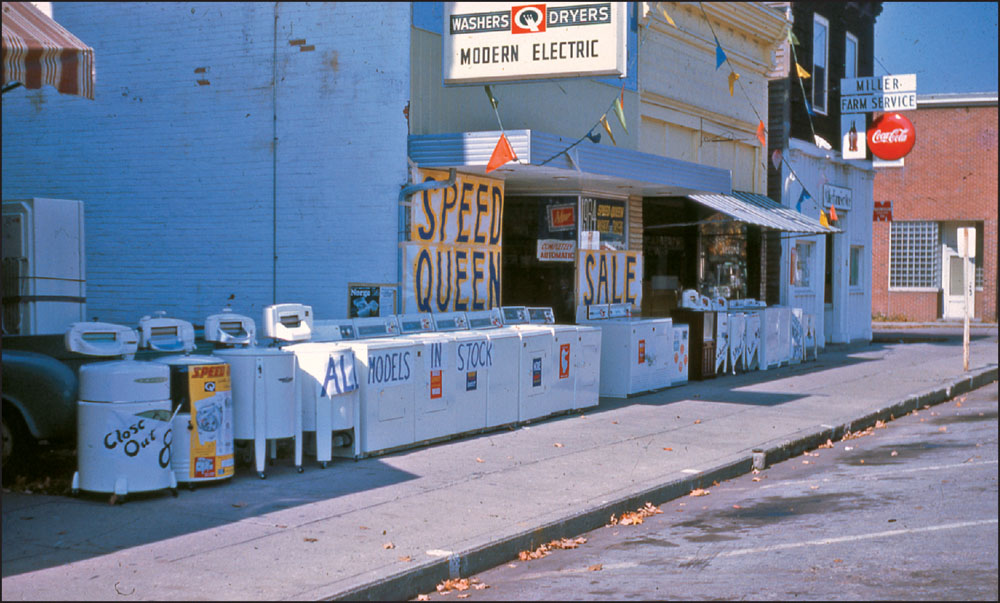
In 1946, Homer Balsley left his job at the North Liberty Newsstand to open his Modern Electric washer and dryer store. The various models are on display in front of his store in this mid-1950s image. The store also offered a large selection of televisions. Balsley turned the business over to his son Bob in 1968. (Courtesy of Allen Balsley.)
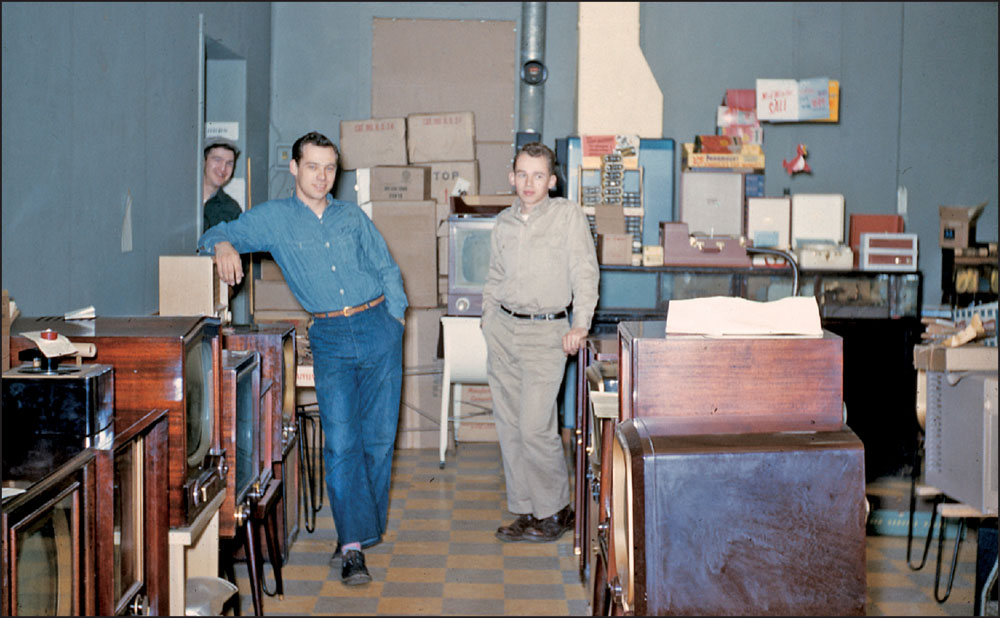
Pictured here in 1955 in Homer Balsley’s store are Art Kime (in the background at left), Bob Balsley (center), and Allen Balsley. Bob and his brother Allen worked for their father, Homer. Allen, commenting on this photograph, said, “We just got out of the service. The uniforms made good work clothes.” Bob also ran a record store, located next to Modern Electric, called Bob’s Record Shop. (Courtesy of Allen Balsley.)
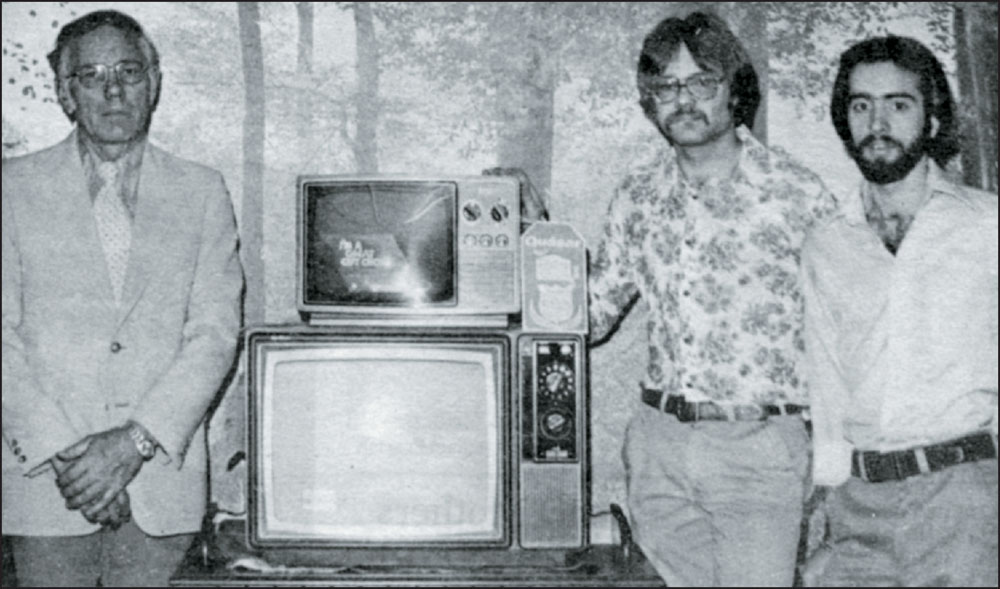
Stereo Village, which occupied 607–609 Roosevelt Road in Walkerton, opened in June 1978. The store offered televisions, receivers, car and home stereo systems, tape decks, Citizens’ Band radios, antennas, records, eight-track tapes, and microwave ovens. Pictured here in 1978 are owners LaVerne Matthew (left) and Mark Matthew (center) and manager Steve Mason. (Photograph by Michael Pearish; courtesy of the author.)
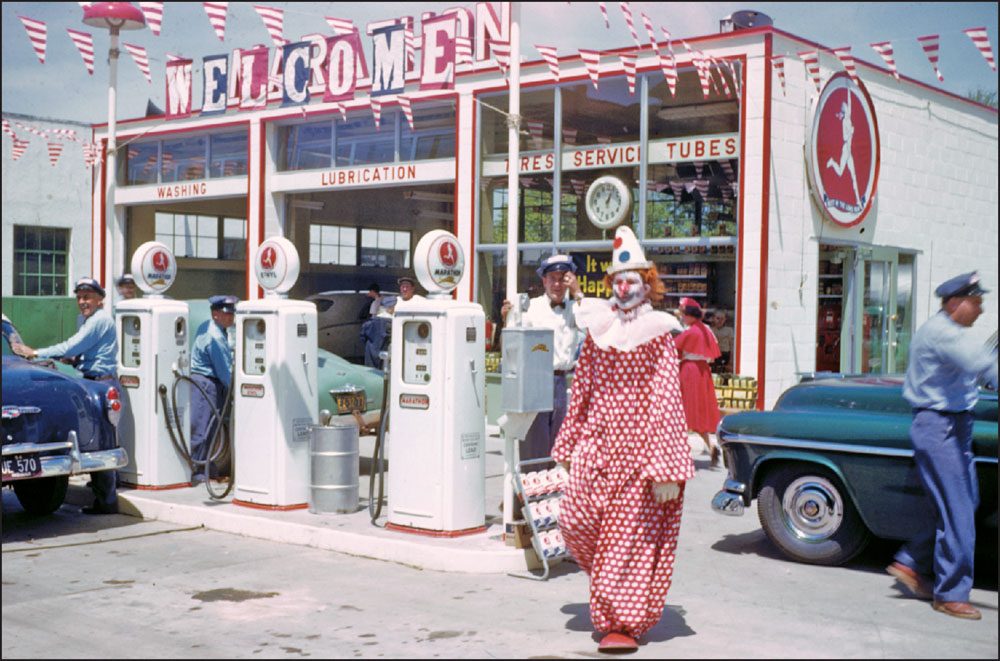
These festivities took place at the newly opened Marathon gas station on Roosevelt Road in Walkerton in the mid-1950s. The building has the standard design of most Marathon stations from that time period and still stands in Walkerton today. (Courtesy of Walkerton Area Historical Society.)
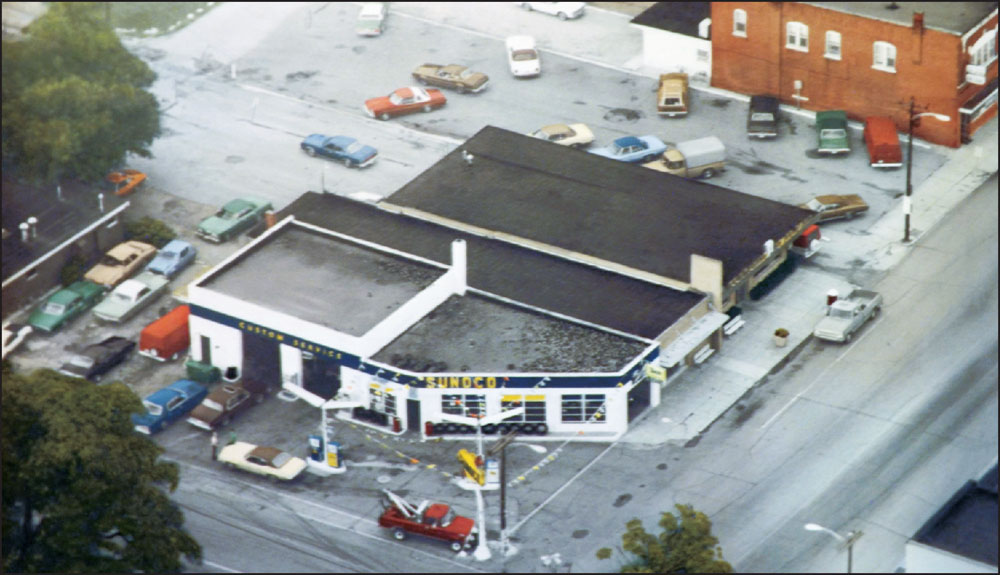
In the summer of 1968, Gene Patrick opened a gas station and service shop at the DX station in North Liberty. Patrick started the business with just a toolbox to his name. This mixed-media painting was created in the 1970s, when the station was known as Gene’s Sunoco. Locals often threw empty bottles onto the roof of the business, as shown here. (Courtesy of Gene and Norma Patrick.)
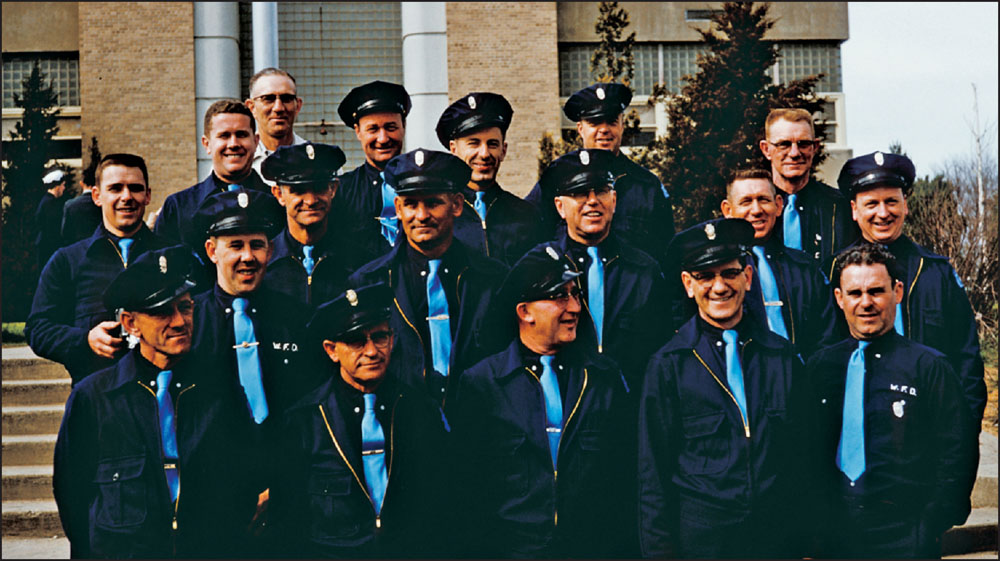
The men of the 1950s Walkerton Volunteer Fire Department pictured here are, from left to right, (first row) Raymond Beagels, Dave Mellin, Ed Sester, Veryl Zimmerman, A.J. Kennedy, and Chuck Cripe; (second row) Deloyce “Sonny” Cripe, Harold Ruby, Russell Ruby, Art DeMyer, John Shields, and Walt Heil; (third row) Ray Chapman, Paul Gard, Bill Baker, Nelson Walz, Jay Downs, and Keith “Red” Knepper. (Courtesy of Walkerton Area Historical Society.)
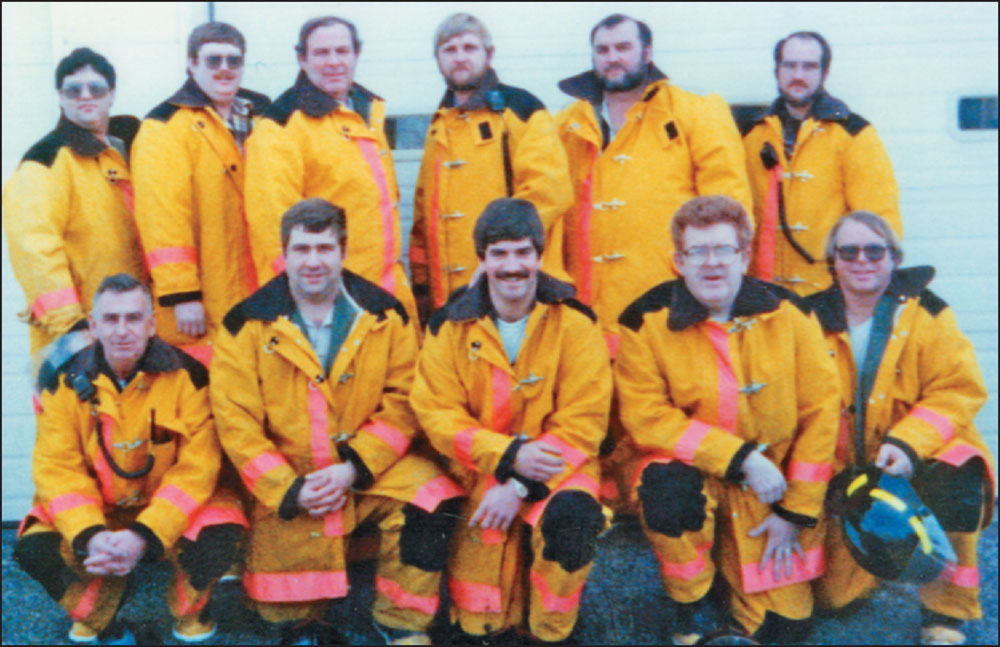
Rural areas rely on local volunteers to be ready at a moment’s notice for emergency calls. The Liberty Township firefighters pictured here in the mid-1980s are, from left to right, (first row) John Gouker, Denny Fisher, Jeff Gouker, Allen Albright, and Denny Birk; (second row) John Blosser, Bryan Albright, Jerry Knepp, John Dooms, Ron Kinas, and Jerry Gouker. (Courtesy of Bryan Albright and the Liberty Township Fire Department.)
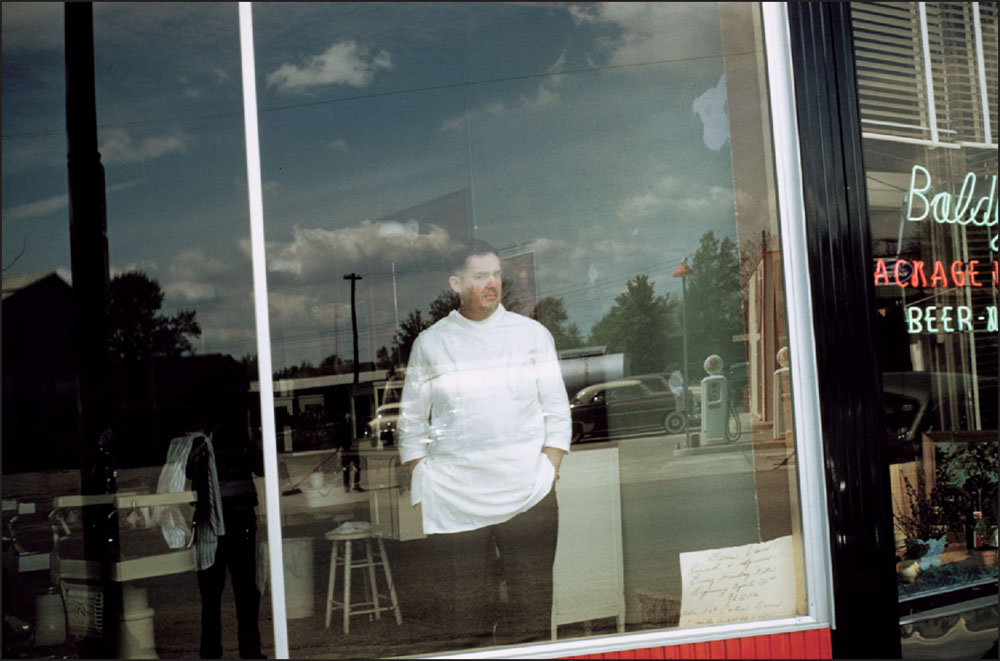
Walkerton barber Walter Jackson looks out at the traffic on Roosevelt Road in this mid-1950s photograph. Jackson’s barbershop was located on the corner of Roosevelt Road and Indiana Street. (Courtesy of Walkerton Area Historical Society.)
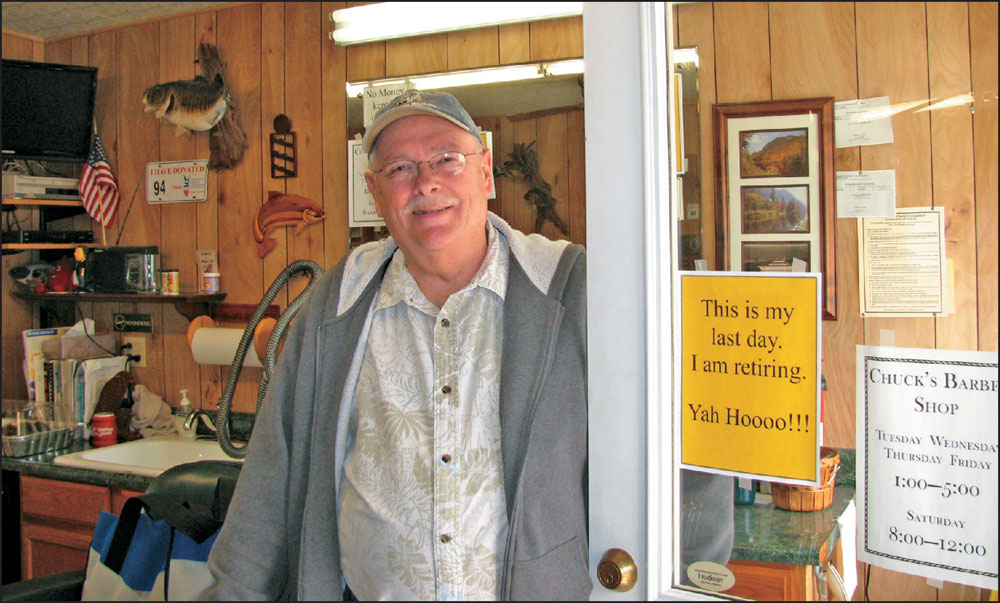
Charles Sherland was a well-known barber in Walkerton. Sherland first started cutting hair at Capek’s Barber Shop in 1968. In 1970, he bought the business from James Capek, renamed it Chuck’s Barber Shop, and relocated it to 613 Roosevelt Road. Sherland is pictured here closing up shop at his Illinois Street location for the final time before his retirement in September 2012. (Courtesy of Charles Sherland.)
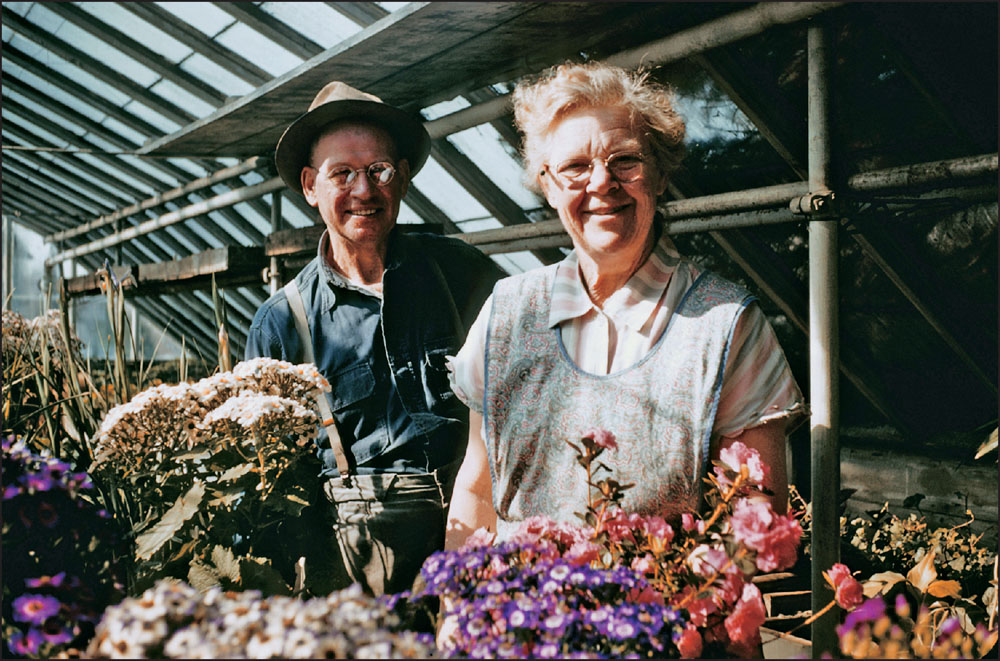
Grover and Mary Belle (Laird) Oplinger owned and operated Oplinger’s Greenhouse in Walkerton starting in the 1930s and lasting until they retired in 1970. Mary Belle was a charter member of the Walkerton Businesswomen’s Club, and Grover was a renowned photographer. Many of the images in this book that feature Walkerton in the 1950s were taken by Grover. (Courtesy of Walkerton Area Historical Society.)

After 50 years in business, the “clang” of the old-fashioned cash register fell silent at Eberly’s Apple Orchard in the fall of 2011. Owner Don Eberly ran the North Liberty farm with his wife, Barb. Don is remembered as much for his beautiful orchard as for his infamous sense of humor. He is pictured here selling freshly pressed cider to customer Ted Daube (left). (Courtesy of Thomas Peterson.)
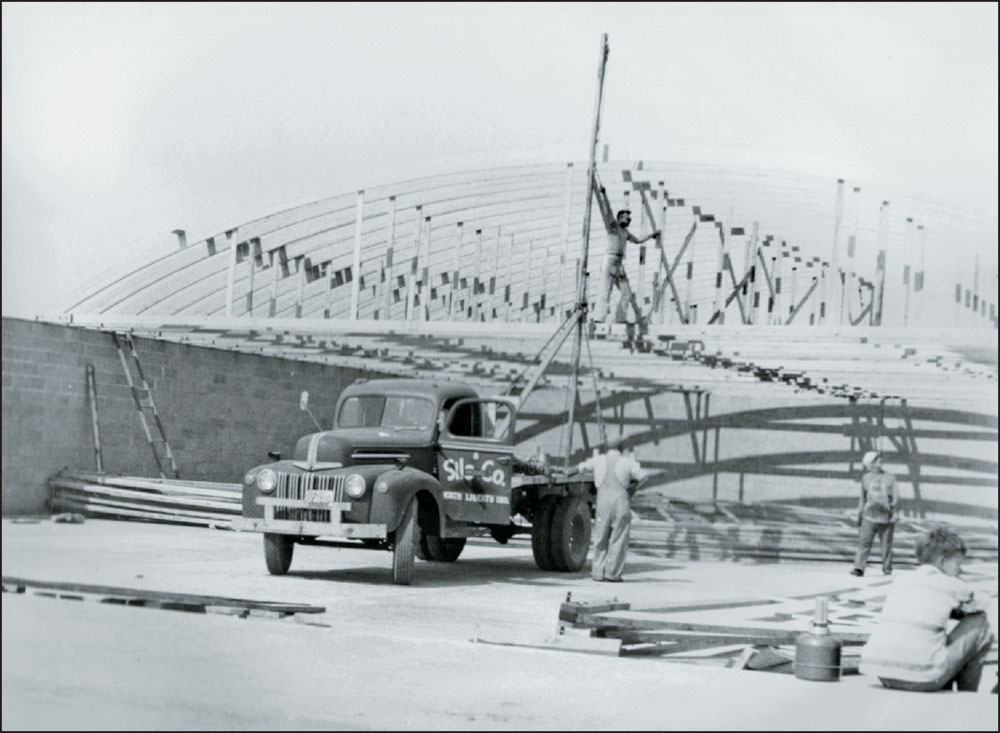
Alvia Zent and his sons Ralph and Bill Zent built the North Liberty Bowling Alley in the mid-1950s. The North Liberty Silo Company helped construct the building, which is pictured here. (Courtesy of Karen Zent Burch.)
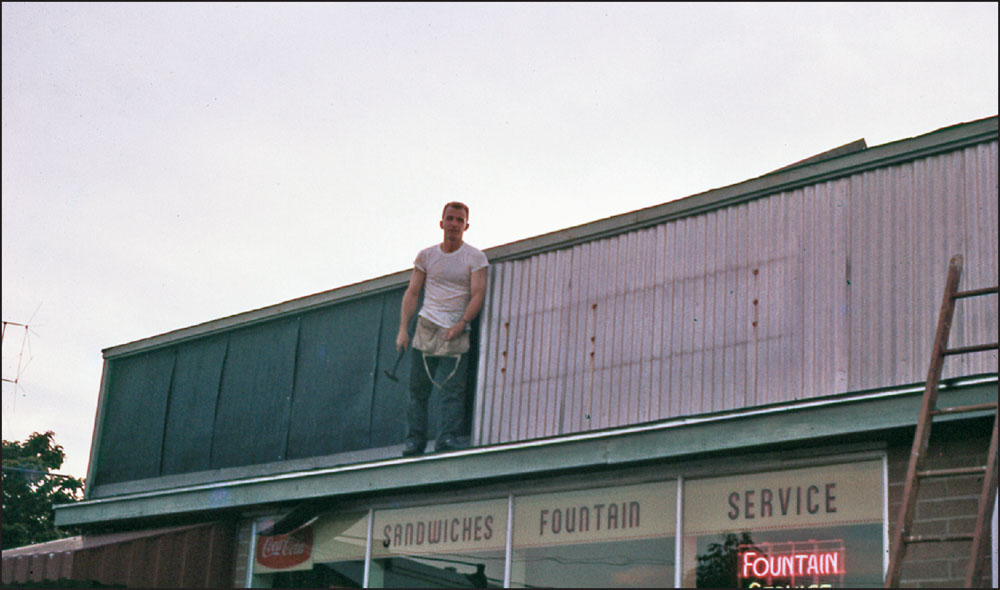
The bowling alley was a popular spot for sandwiches and fountain drinks. Ralph Zent is shown here making repairs in the summer of 1960. Zent spent many years serving as an officer for the North Liberty Police Department. (Courtesy of Thomas Peterson.)
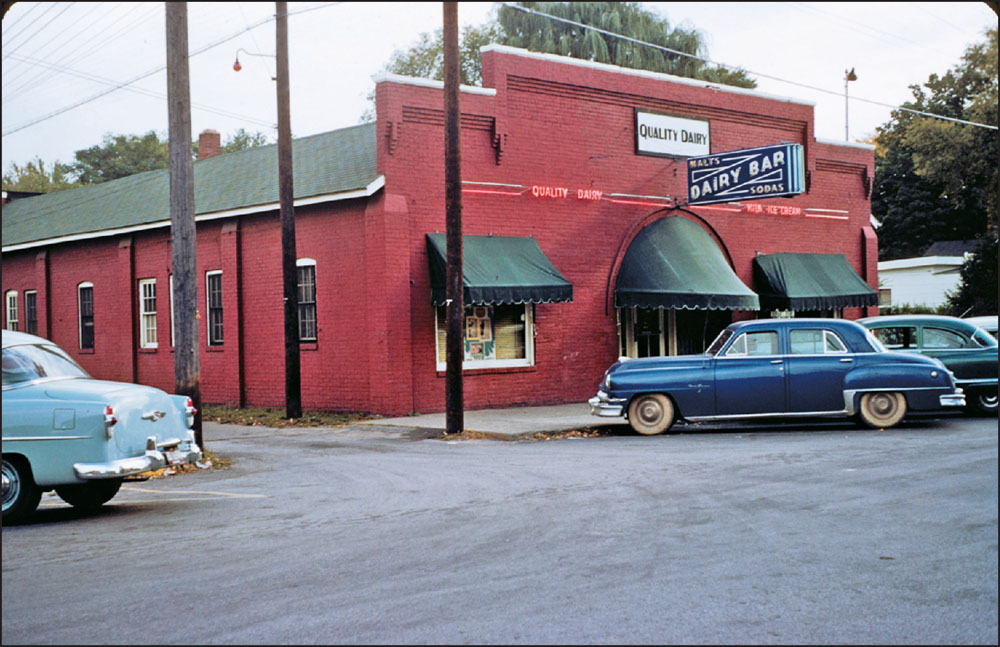
A few years after serving his country during the Korean War, Harold Teeter, along with his wife, Donna, started the Dairy Bar in Walkerton. The Quality Dairy ice cream shop is shown in this daytime photograph from the 1950s. (Courtesy of Walkerton Area Historical Society.)
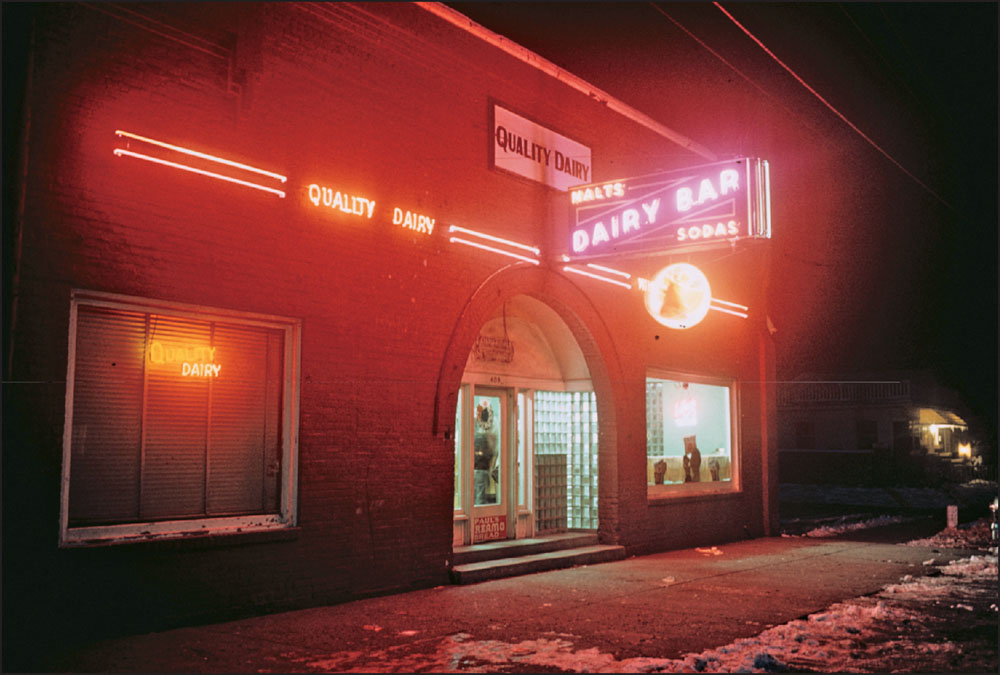
After closing the Dairy Bar in 1966, Harold Teeter operated a pizza place called Harold’s Pizza from 1967 until 1980. This is a night view of the Dairy Bar in the 1950s. (Courtesy of Walkerton Area Historical Society.)
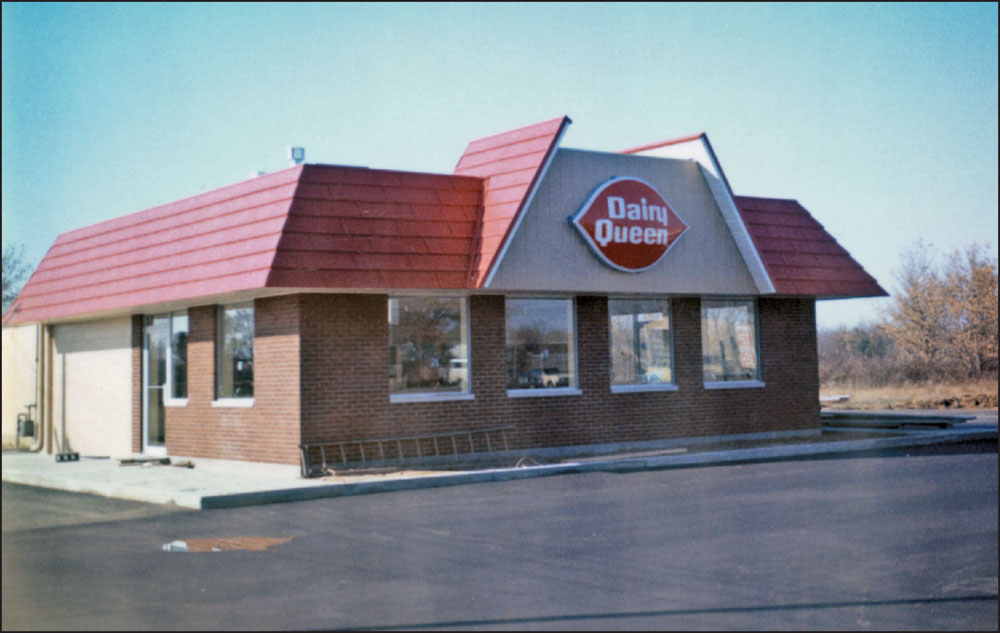
Sam and Hilda Frame owned and operated the Dairy Queen in Walkerton. It was located on US 6, across from WELCOS Truck Stop. Prior to the creation of this building, shown under construction in 1969, it was a walk-up ice cream shop. The new building allowed for seating, and they began serving food as a Dairy Queen Brazier. The Frames sold the business in 1975, when they retired. (Courtesy of Rebecca Mollenhauer Andrews.)
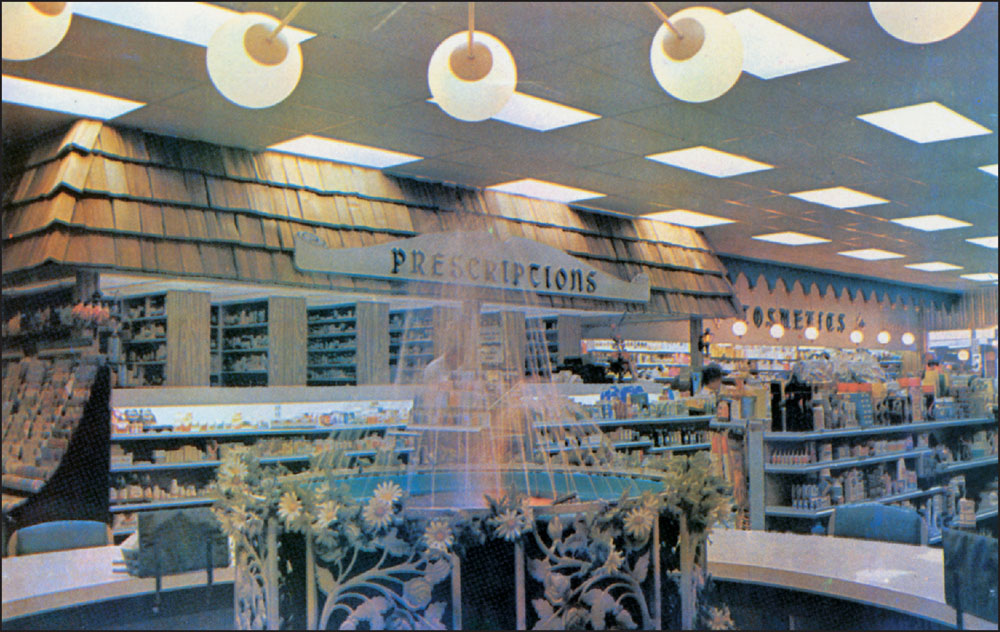
The fountain at the sandwich counter of Jacob’s Drugstore in Walkerton was a well-known local attraction. Mahlon Jacob owned the store, which was located at Roosevelt Road and Illinois Street. It is shown here in the late 1970s. (Courtesy of Walkerton Area Historical Society.)
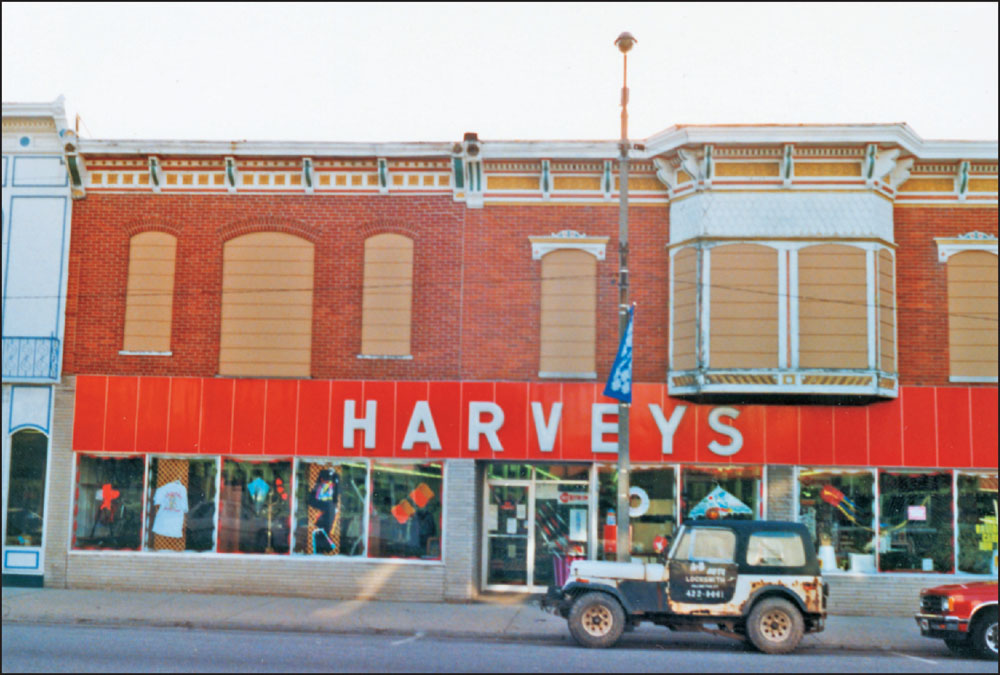
Ralph and Louise Harvey owned Harvey’s, a unique dime-store chain in northern Indiana. There were two locations in southern St. Joseph County, one in Walkerton and one in North Liberty. The Harveys purchased the Walkerton location, shown here in the early 1990s, in 1959. Previously, the building had been used as a locker plant. The business thrived and later expanded in 1971. (Courtesy of Walkerton Area Historical Society.)
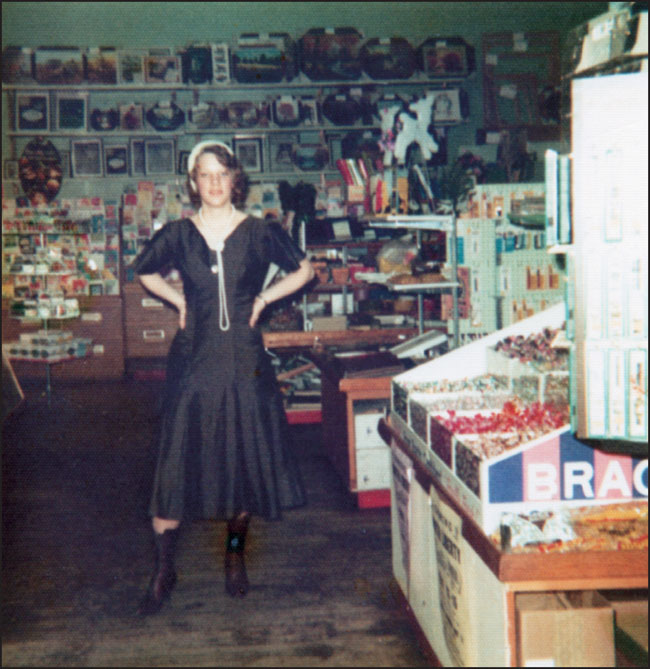
The Harveys purchased the Pearce Building in 1959 to use it as the location of the North Liberty Harvey’s store. The front door’s handles clanked when it opened, and the floors creaked when one walked on them. All of this added charm to the quaint little store. In this 1976 image, Lisa Zimmerle poses in a vintage costume during America’s bicentennial celebration at the North Liberty Harvey’s. (Courtesy of Gladys Sheneman.)
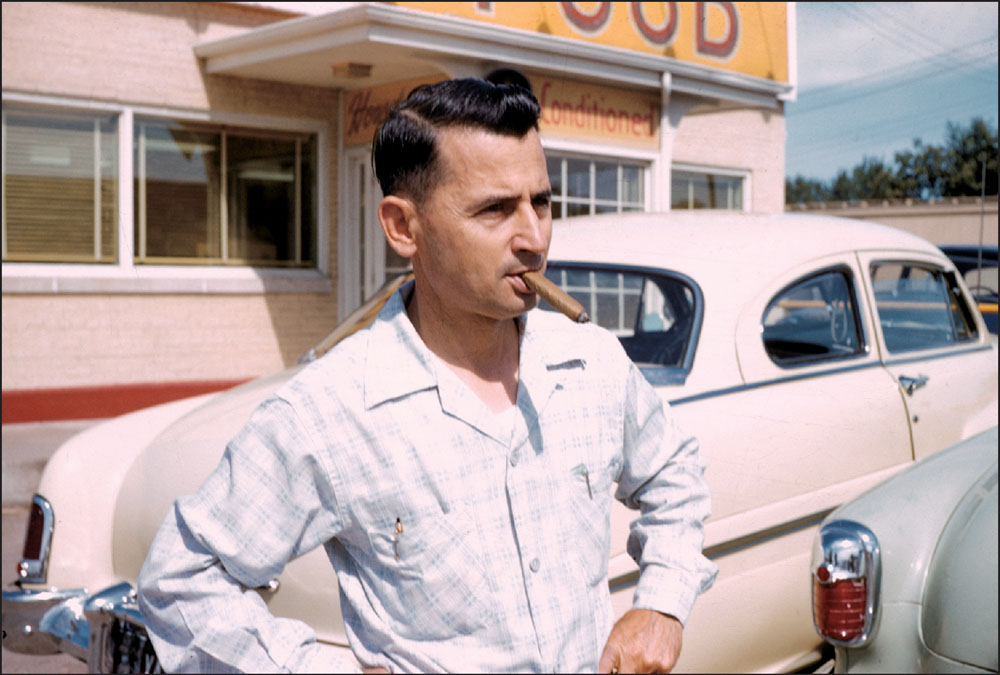
Wells Petroleum Company, better known as WELCOS, was a popular truck stop in Walkerton for over 50 years. A hot cup of coffee, wonderful food, and engaging conversation with the staff made it the place to be. For many years, it was run by Jimmy Meltinos, who is pictured here in the 1950s. (Courtesy of Walkerton Area Historical Society.)

On the night of January 16, 2005, 10 different fire departments battled an enormous blaze at WELCOS. The fire completely destroyed the building, and it was never rebuilt. In this 1980s photograph, local resident Richard Kickbush enjoys a cup of coffee in the restaurant. (Courtesy of Walkerton Area Historical Society.)




































